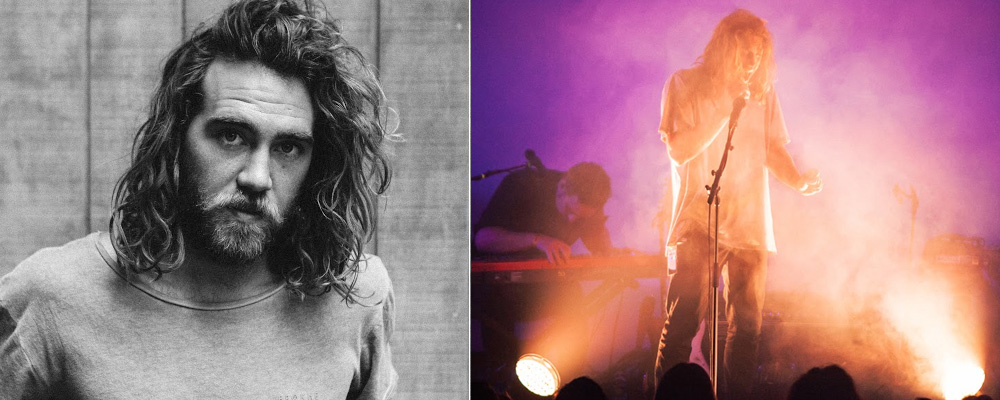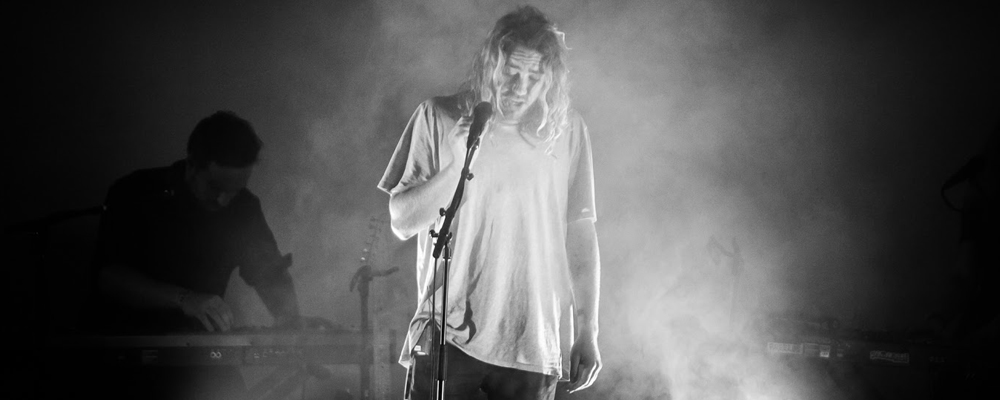Matt Corby Shares His Approach to Songwriting and Avoiding Commercialization
Matt Matasci
Australian singer-songwriter Matt Corby is a rising star in the alternative music scene. His fourth EP was released in ‘11 and proved to be his most commercially successful release, going platinum several times over in his home country. Earlier this year, the musician released his long-awaited full-length studio debut, “Telluric.” The album was a smash in Australia, hitting the number one spot while receiving positive reviews from the music media. Partially through his tour in support of the album, Corby took the time to speak with Entertainment Voice about what the album means to him, how he keeps his songwriting fresh and the pressures of commercialization.
You have put much thought and emotion into your long awaited debut album “Telluric.” The album has a very specific ambiance to it, a mixture of rhythm and blues, folk and bit of psychedelia. It feels very naturalistic, straight from the soul. What does “Telluric” mean to you?
It’s a reflection of where I am in time and the way that I see music. I guess I was trying to see how far I could push my creative limit at the time. And “Telluric”. . . is kind of the way I feel about what we are as people. [We are] products of our intelligence, kicking around, thinking that we know shit and trying to solve problems.
As a singer-songwriter, your style is quite unique. What are some aspects of generic songwriting that you try to avoid when writing music?
A lot of the times, if I write a song that can be complex . . . I don’t want to be repeating anything that is easily understood. Not in a way that’s “I’m trying to be cool” . . . it’s just all been done, so it’s hard; you have to find new ideas to be able to present the same notes with rhythm and harmony and melody and all that. I guess I’m not at that point in my life where I want to write straight-up pop music. I don’t know if I ever will be. It’s more I’m looking at the format of music the way that I know how to.
You have said that several of your songs are inspired by friends. Will you tell us how some of your closest friends have inspired particular songs?
That’s my only reference point for what it is to be a human, in some sort of a community. I feel really lucky that I’ve got really good human beings around me who are into what I’d say are the right things in life and the right way to give back to people. I, like many people, am in the pursuit of just becoming a better human being and I’m really glad that all my friends see the world like that as well and challenge [one another] a lot.
Some artists love writing on the road while others say it is impossible. Are you able to get much writing done while touring?
Not really. We jam during sound-checks when we have enough time and try to create something new and fun. If the jam’s getting really fucking hot then I’ll end up trying to think of something to go over the top of it, create a little one-off thing; and if it’s good enough it gets remembered. The way that our tour schedule is set up it doesn’t really leave much room to be in a stress-free creative environment. Now, it’s like travel, wait, play, travel, wait, play. But, yeah, I think maybe if one day if I have enough money or whatever to tour really comfortably and be like The Strokes where they have a fucking studio in the next room that would be an absolute dream.
You just finished up performing at Sasquatch! Music Festival this weekend. Do you have a preference for performing at festivals versus traditional club or theater gigs?
With festivals, a lot of times nowadays they’re not specifically stylized – they’re more just like every kind of music. You’re coming to an environment where it’s not something you can control and no one’s really there to see you, even though you might be a part of a roster of people [who] someone went to the festival for. It’s more like with festivals you just kind of hold on whereas your own show, you can try as best you can to create a community feeling for an hour and hopefully get everyone involved. So really the gigs that I love and the ones that I’ve been to that have been like that have always been the most special.
Your recently released single “Knife Edge” has a hell of a lot of soul to it. Tell us about the creation and direction of this track and what the lyrics “always on the knife’s edge here with you” mean to you.
I was writing about my partner at the time. We were having a difficult time being away from each other. I think that was secretly expressed and I ended up getting frustrated with trying to be a good partner and do the work that I was trying to do and I thought meant something. And that was making music. And I think that song came out of . . . it’s a little bit of frustration. I know it’s always touch-and-go with every single relationship, but I only want to make this for the whole, not just for me.
The song came out really quick; that riff just kind of carries through the whole thing and it’s pretty simple really. The way I would make the record was I’d set up a whole bunch of gear in a tiny little house two hours from where I lived and I just spent two months playing everything, getting grooves together and trying songs over the top of them.
Another single from the album, “Monday,” is instrument-free, using your voice as the prominent feature. You’ve said the track represents the place in time you find yourself in nowadays. What more can you tell us about that idea and how it relates to your progression as an artist?
I think it’s one of those songs that represents your emancipation from what you’re convicted to believe . . . what you should really think and feel and respond to what’s going on around you. That song kind of made a few existential statements or the awareness of the fact that things are constantly changing and are not always what they seem to be.
You achieved commercial success with your fourth EP, “Into the Flame,” yet have expressed a disinterest in being overly commercialized as an artist. Are you concerned that “Telluric” taking off could increase the pressure to lean your musical career in that direction?
I don’t really know. What is success? To be honest, I don’t really know [the level of “Telluric’s” commercial success]. I intentionally try not to pay attention to stuff like that because it does end up [affecting] what you do and gives a different idea of yourself that is exacerbated by you thinking that you’re popular. You have to assume a certain identity now because people know you or regard you in that similar light.
The way that I see it now – and this will probably change – I guess I just want to evolve and never rest on anything. For now, I just don’t want to get bored; I don’t want to undermine where creativity can take someone. Sure, there might be a few really shitty records but there may be some fucking awesome ones, too, that I would never have gotten to if I decided to make really commercially viable music for the sake of having a long-term career . . . . I may fucking eat my words someday but that’s the way that I see it now.



